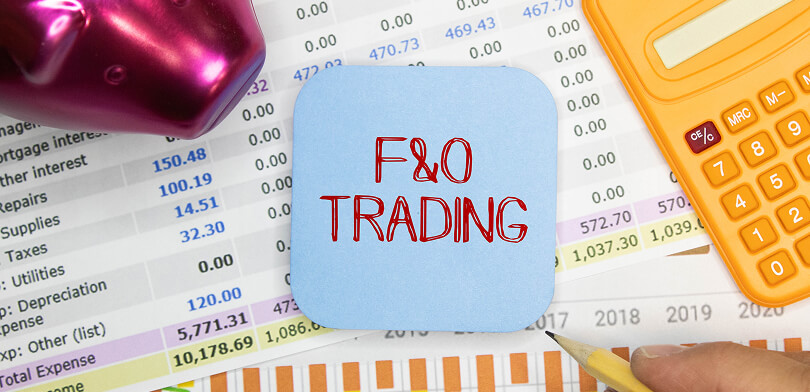- Last Updated: May 24,2025 |
- Religare Broking
The Foreign Exchange Market (Forex) in India plays a pivotal role in the country's economy, facilitating the exchange of currencies globally. This market enables individuals, businesses, and financial institutions to trade currencies, allowing for international transactions, hedging against currency risks, and fostering investment opportunities.
As one of the largest and most liquid markets worldwide, the Indian Forex market provides a platform for diverse participants to engage in currency trading, contributing significantly to India's financial stability and global economic integration. Let’s dive deeper to understand the concept in detail. Let’s understand the advantages of the foreign exchange market in detail.
- What is the Foreign Exchange Market?
- How does the Foreign Exchange Market work?
- Advantages of the Foreign Exchange Market in India
- Conclusion
Topics Covered:
What is the Foreign Exchange Market?
The Foreign Exchange Market refers to the global decentralised marketplace where currencies are bought, sold, and exchanged. It's the hub for international trade and investment, facilitating the conversion of one currency into another for various purposes, including commerce, tourism, investment, and speculation.
Participants in the Forex market range from individuals and businesses to financial institutions and governments. Trading occurs 24 hours a day, five days a week, spanning different time zones worldwide, allowing continuous currency trading.
Major factors influencing currency values include geopolitical events, economic indicators, interest rates, and market sentiment. These elements contribute to the market's volatility and create opportunities for profit through buying and selling currencies.
The Forex market comprises various participants: banks act as major liquidity providers, corporations engage in international trade, institutional investors manage portfolios, and individual traders access the market through brokers or electronic trading platforms.
Its vast size, high liquidity, and accessibility make the Forex market one of the largest and most liquid financial markets globally, facilitating seamless global transactions while influencing economic policies and fostering international trade relationships between countries.
How does the Foreign Exchange Market work?
The Forex Market involves continuous buying and selling of currencies by participants worldwide, including banks, financial institutions, corporations, and individual traders.
Forex trading occurs in currency pairs, where one currency is exchanged for another based on their relative values. For instance, in the EUR/USD pair, the euro's value is compared to the US dollar. Prices fluctuate based on supply and demand dynamics influenced by various factors like geopolitical events, economic data, interest rates, and market sentiment.
Recommended Read: Meaning of Demat Account
Trading in the Forex market is conducted electronically through over-the-counter (OTC) transactions, enabling 24-hour trading across different time zones. The market does not have a central exchange; instead, it relies on a network of banks and brokers worldwide to facilitate trades. High liquidity, large trading volumes, and constant accessibility make the Forex market highly dynamic, allowing participants to speculate on currency price movements for potential profit.
Advantages of the Foreign Exchange Market in India
These advantages of the foreign exchange markets contribute significantly to the country's economy and financial landscape.
- Facilitates International Trade : The Forex market supports India's international trade. It enables businesses involved in imports and exports to convert currencies, manage risks due to exchange rate fluctuations, and conduct cross-border transactions efficiently. This facilitates smoother trade relations with global partners, fostering economic growth.
- Exchange Rate Management: The Forex market allows the Reserve Bank of India (RBI) to intervene and manage exchange rates. RBI's interventions through market mechanisms help stabilise the currency, ensuring a more predictable exchange rate regime and fostering confidence among investors and traders.
- Enhances Liquidity and Market Efficiency : The Indian Forex market offers high liquidity due to the significant participation of various entities, including banks, financial institutions, corporates, and individual traders. This liquidity ensures smooth transactions and narrow bid-ask spreads, contributing to market efficiency.
- Attracts Foreign Investment: A well-functioning Forex market attracts foreign investors. India's open and regulated Forex market, coupled with the convenience of online demat account, provides opportunities for foreign investors to participate in currency trading, invest in Indian financial instruments, and engage in portfolio diversification. Thereby boosting capital inflows into the country.
- Risk Management for Corporates: Corporates in India utilise the Forex market to hedge against currency risks. Businesses can mitigate potential losses arising from adverse currency fluctuations by engaging in forward contracts, options, or futures, thus safeguarding profit margins.
- Supports Tourism and Remittances : The Forex market supports India's tourism industry by enabling currency exchange for tourists. Additionally, it facilitates remittances from Indians working abroad by allowing them to convert foreign earnings into Indian rupees efficiently.
- Access to Diverse Investment Opportunities : The Forex market provides Indian investors diverse global investment opportunities. Individuals can participate in currency trading, diversify their investment portfolios, and potentially benefit from currency price movements.
- Contributes to Economic Stability: A well-regulated and efficiently functioning Forex market contributes to overall economic stability. Stable exchange rates foster macroeconomic stability, encourage foreign investment, and promote healthy economic growth.
- Innovation and Technological Advancements: The Indian Forex market has witnessed technological advancements, offering traders sophisticated trading platforms, real-time data, and advanced analytical tools. This technological progress has enhanced accessibility, transparency, and efficiency within the market.
- Encourages Competition and Market Development: Multiple participants in the Forex market foster healthy competition, innovation, and market development. This leads to the introduction of new financial products and services, catering to diverse investor needs and promoting market evolution.
Conclusion
The benefits of the Foreign Exchange Market in India are vital to the country's economic framework. Its role in facilitating international trade, managing risks, attracting investments, and fostering economic stability showcases its significance in India's financial landscape and global integration.












